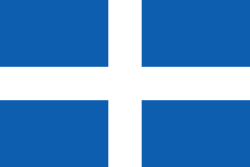| Greece at the 1956 Winter Olympics | |
|---|---|
 | |
| IOC code | GRE |
| NOC | Hellenic Olympic Committee |
| Website | www |
| in Cortina d'Ampezzo | |
| Competitors | 3 (men) in 1 sport |
| Flag bearer | Alexandros Vouxinos [1] |
| Medals |
|
| Winter Olympics appearances (overview) | |
Greece competed at the 1956 Winter Olympics in Cortina d'Ampezzo, Italy.